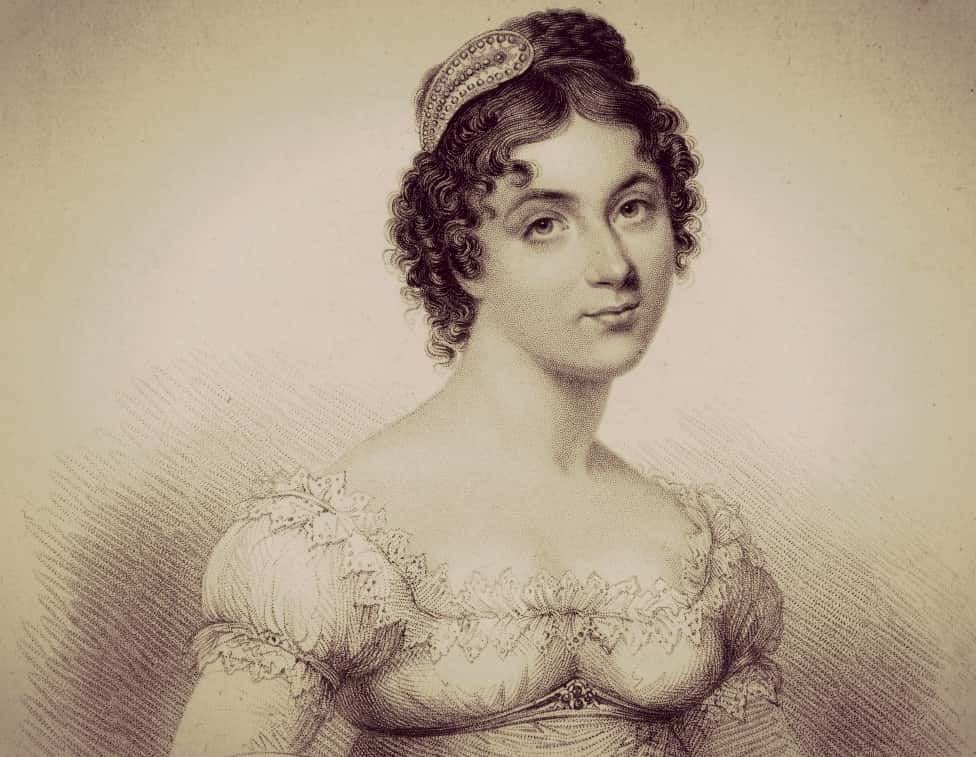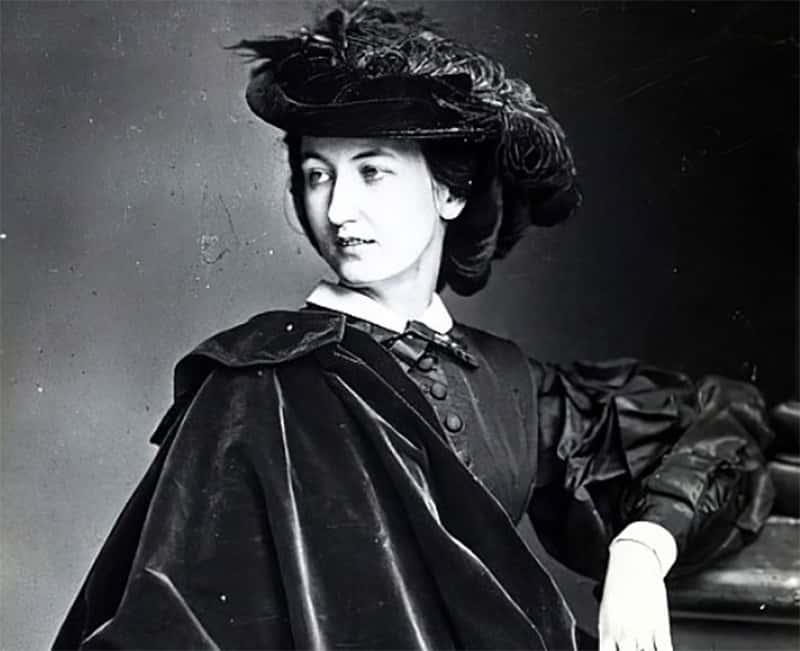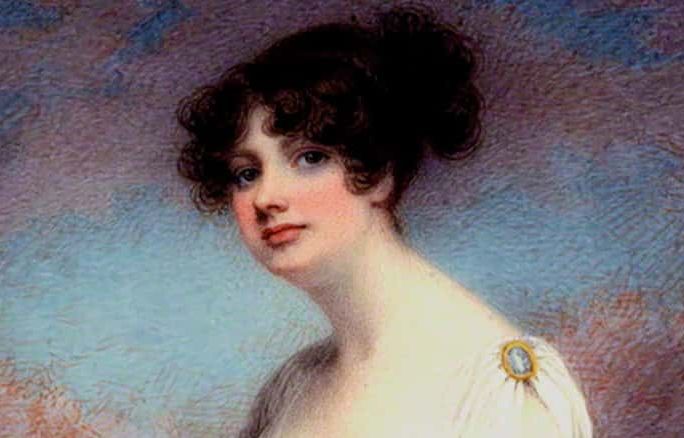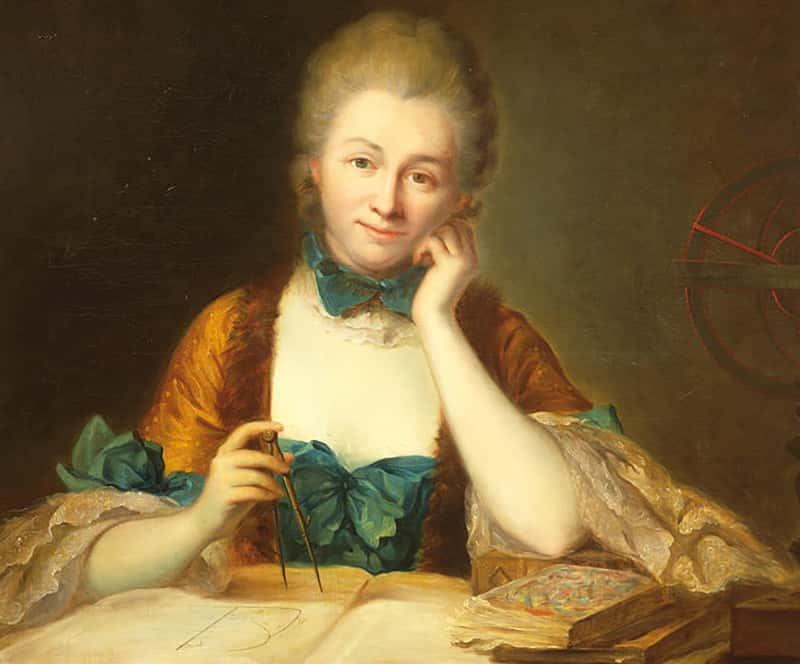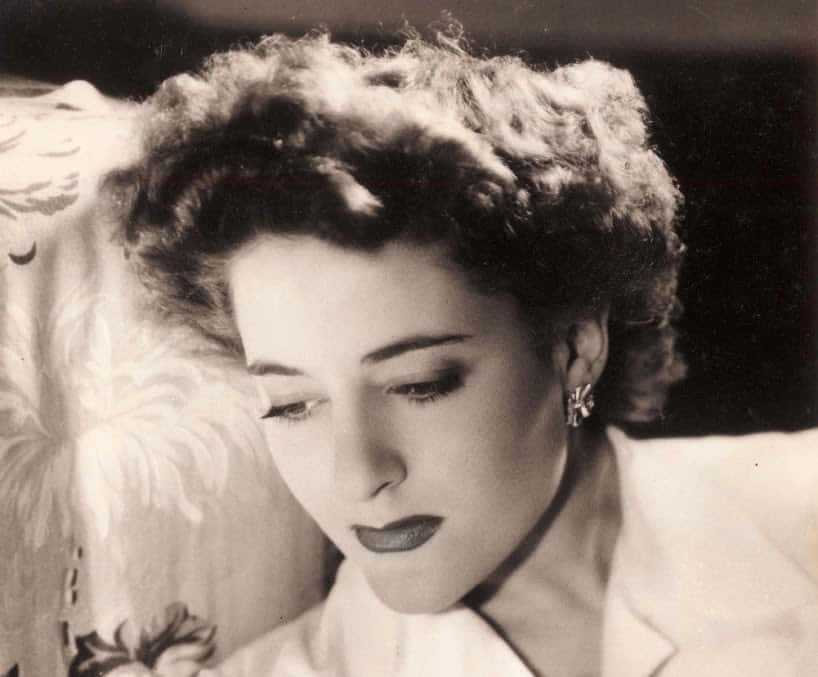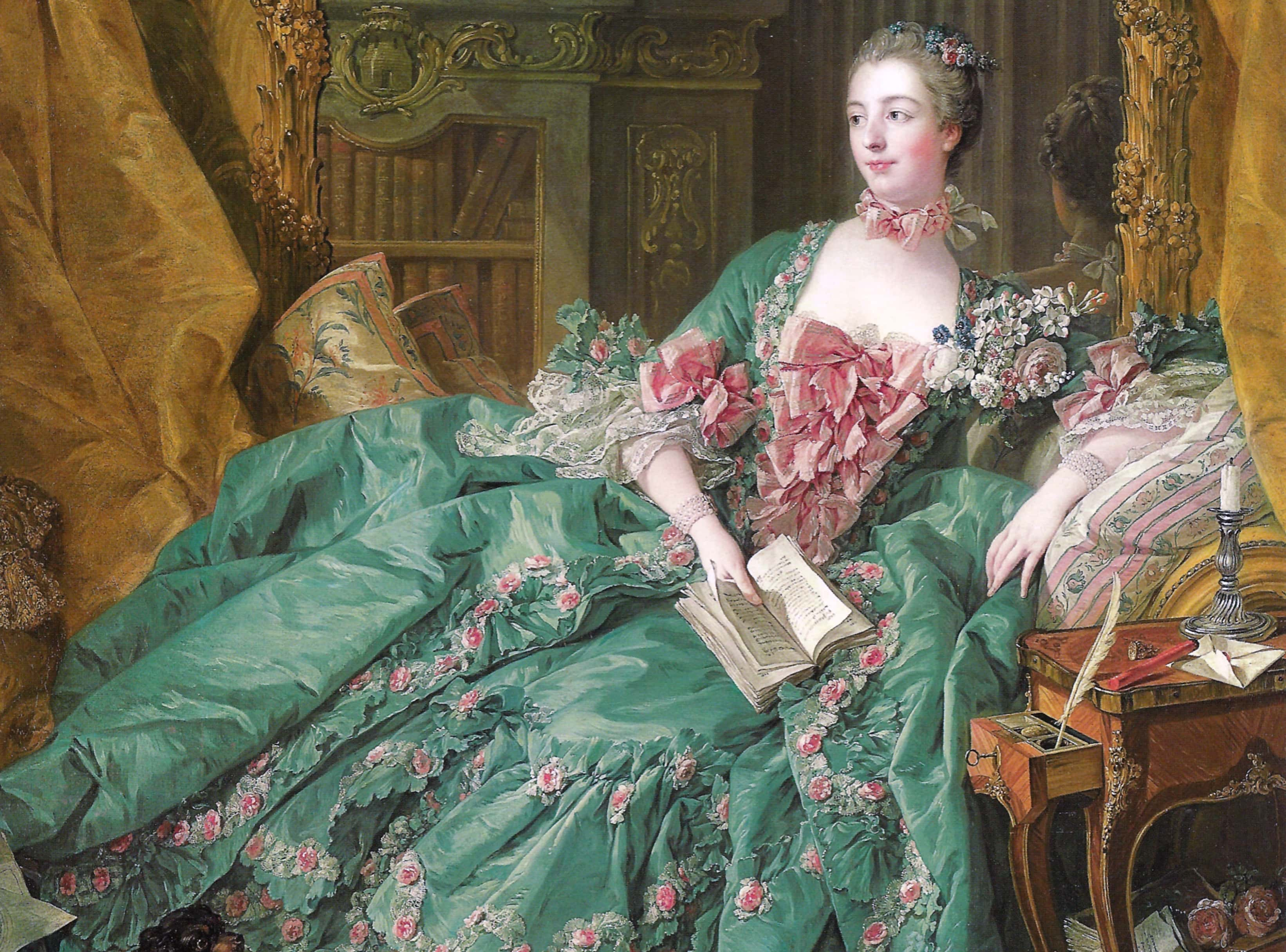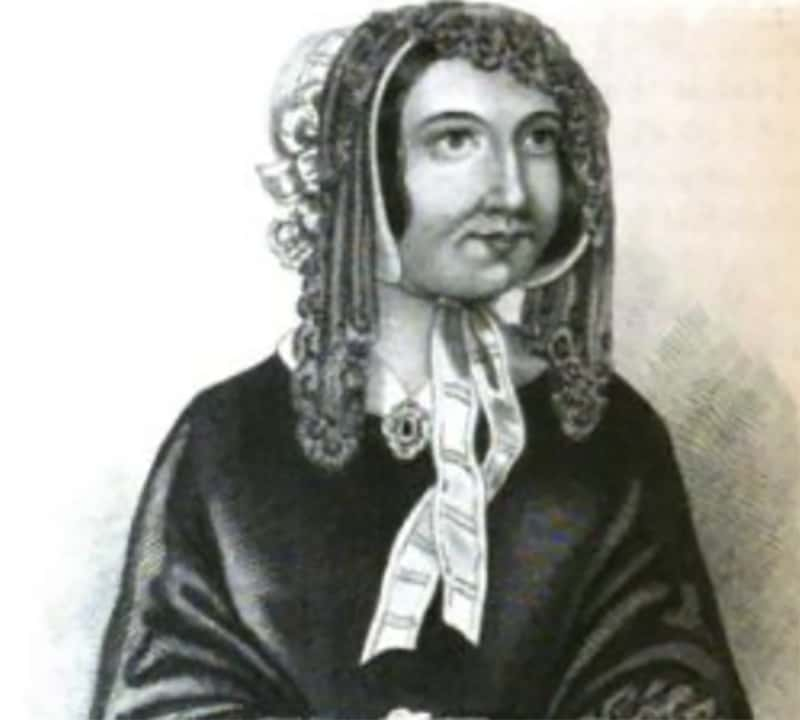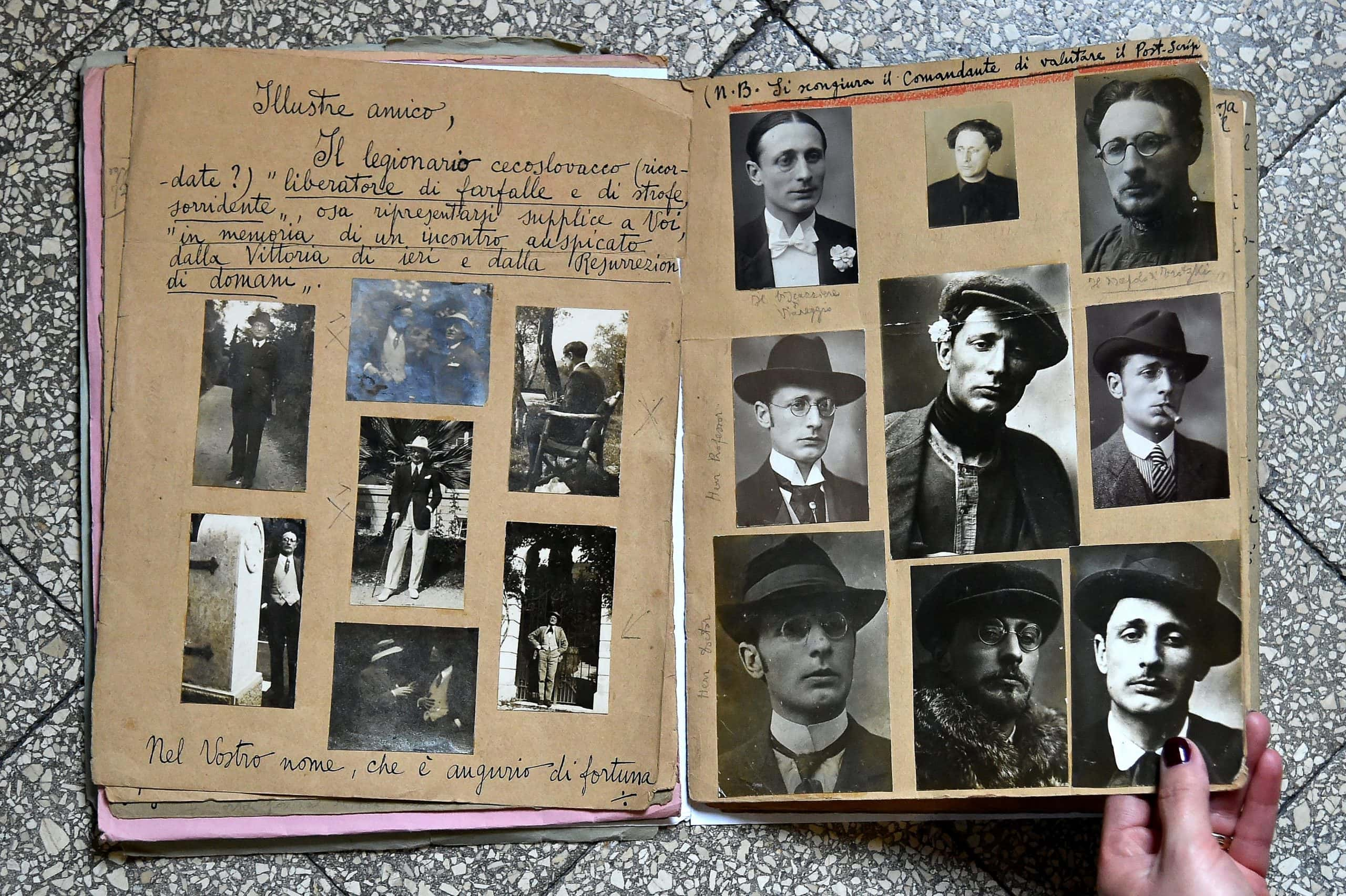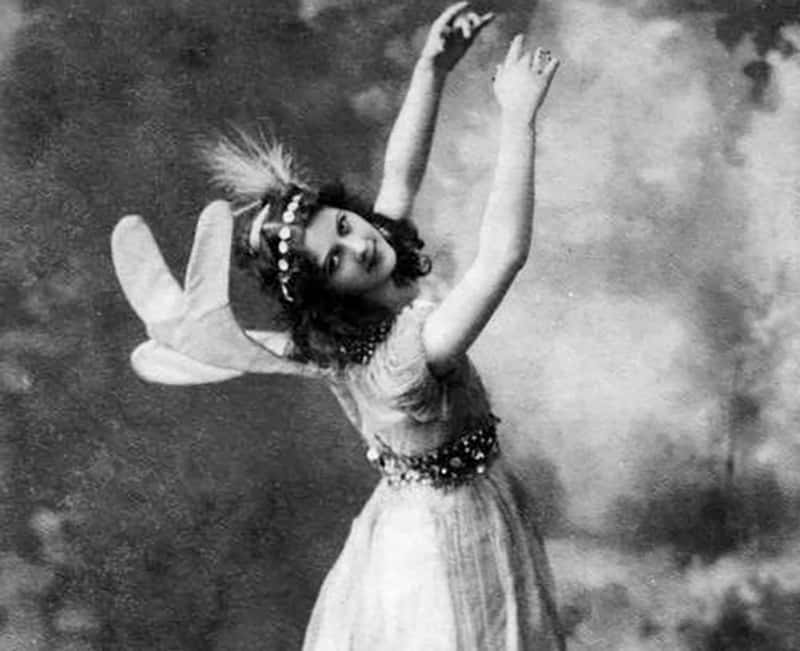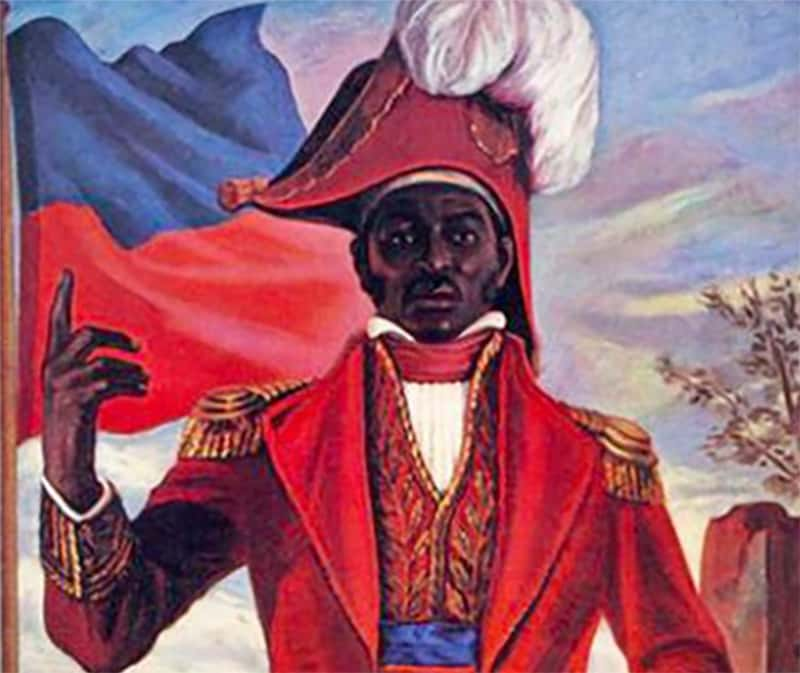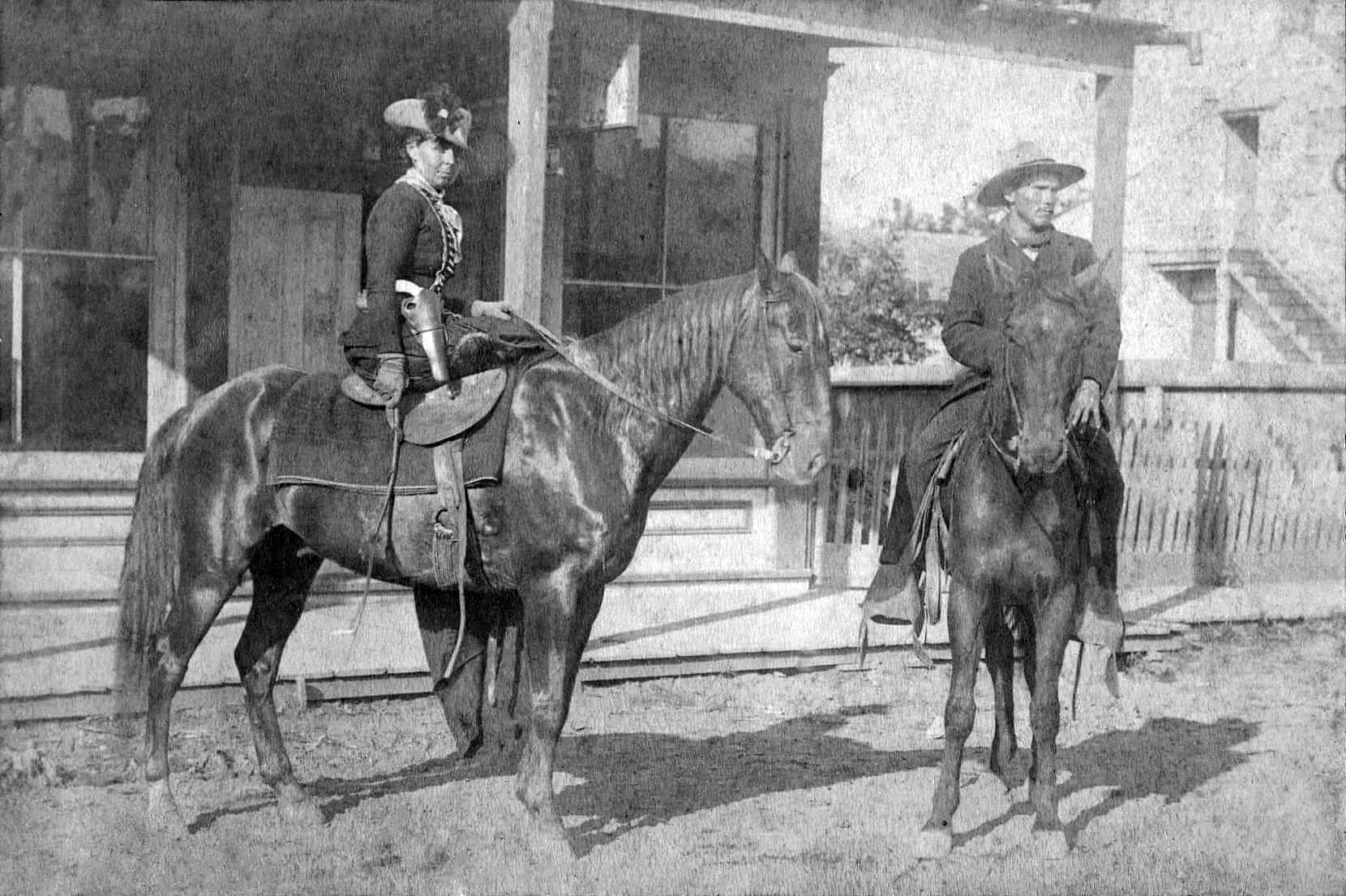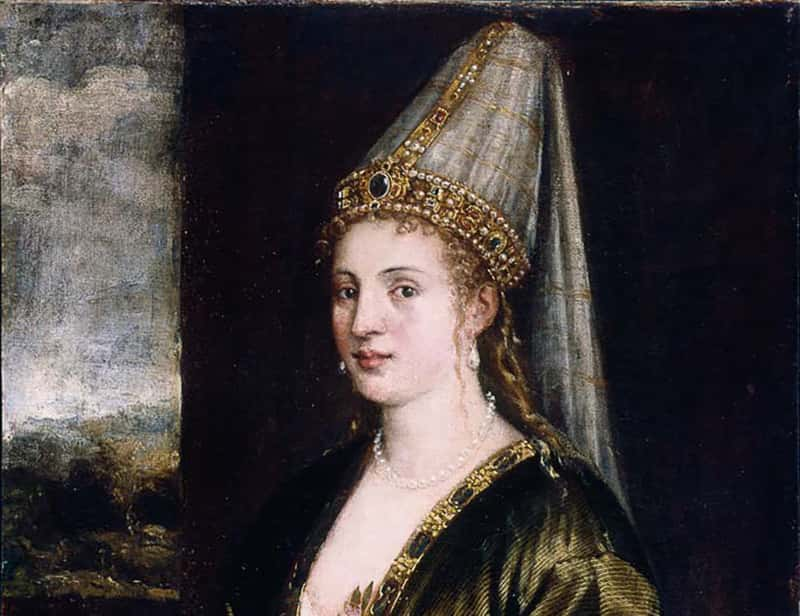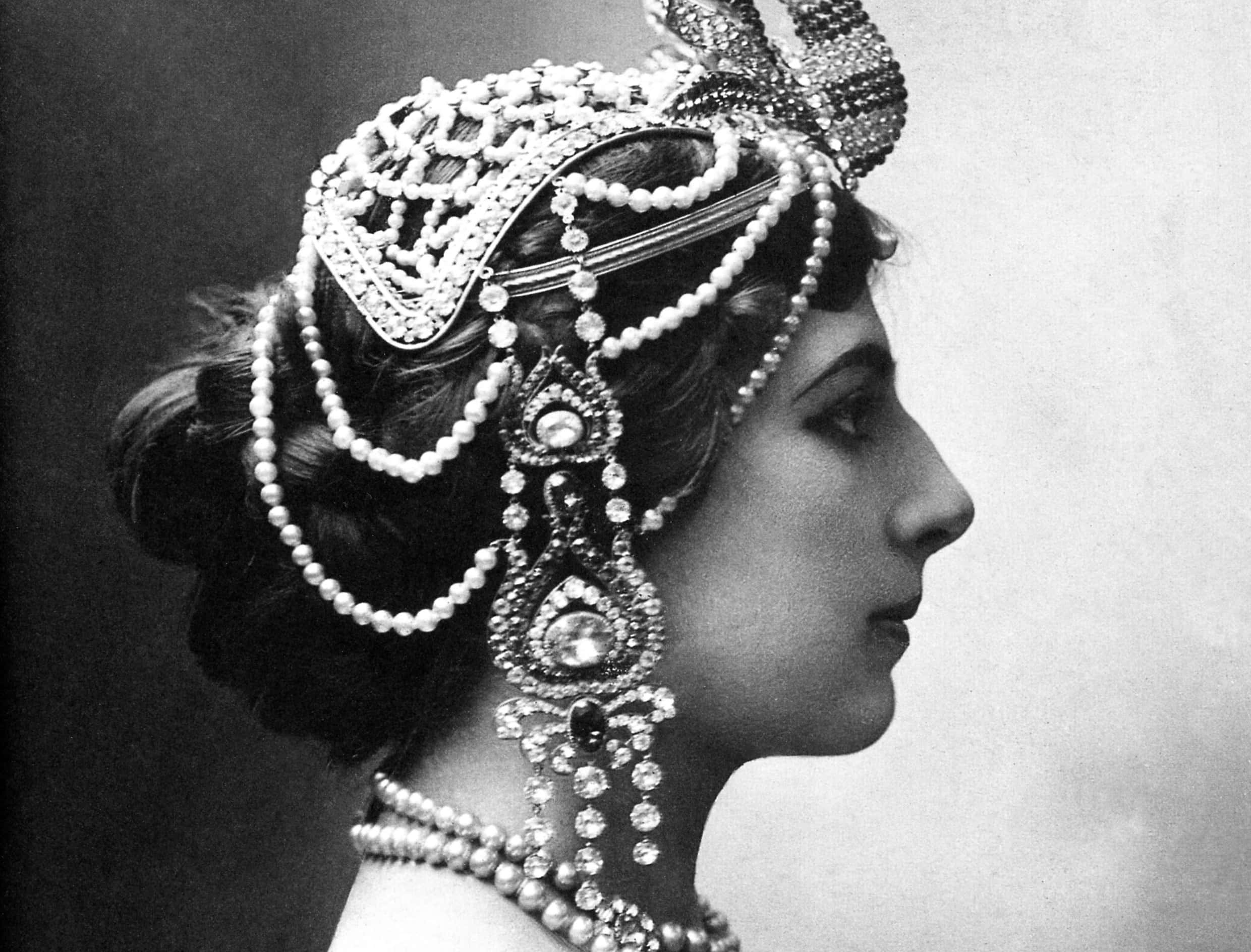“I always wanted to be a femme fatale. Even when I was a young girl, I never really wanted to be a girl. I wanted to be a woman". –Diane von Furstenberg
What is a “femme fatale”? Is she a schemer? A mistress of seduction? A general maneater? Or is a “femme fatale” simply any woman with power and a plan? The Hollywood film noir has immortalized the femme fatale as a sexy character archetype, a lady who lures men into deadly plots with her mix of great beauty and bad intentions. Going backward into history, however, we can see her archetype emerge again and again, as artists and historians struggle to wrap their heads around female power.
These days, it looks like all a woman needs to do is exert power in any sort of dangerous or non-traditional way and—boom!—we got ourselves a femme fatale! Not only classical temptresses, but also spies and serial killers have been classified under the intriguing label, even if these stories only minimally explore aspects of their allure or femininity. Adjust that lipstick and savor these 42 devious facts about femmes fatales.
1. Assassin of My Heart
In 1960, the CIA coerced Fidel Castro's mistress to end his life. According to the plan, the woman, Marita Lorenzo, was to provide Castro with poison pills hidden in her jar of face lotion. Unfortunately, the pills dissolved in the cream, and things got even worse: Castro got wise to her plot.
Yet it appeared Castro was more heartbroken than mad, as he offered Lorenzo his own firearm and told her to finish him off herself. She still loved him and couldn’t do it. They ended on good enough terms for her to visit one last time in 1961.
That’s love, folks!
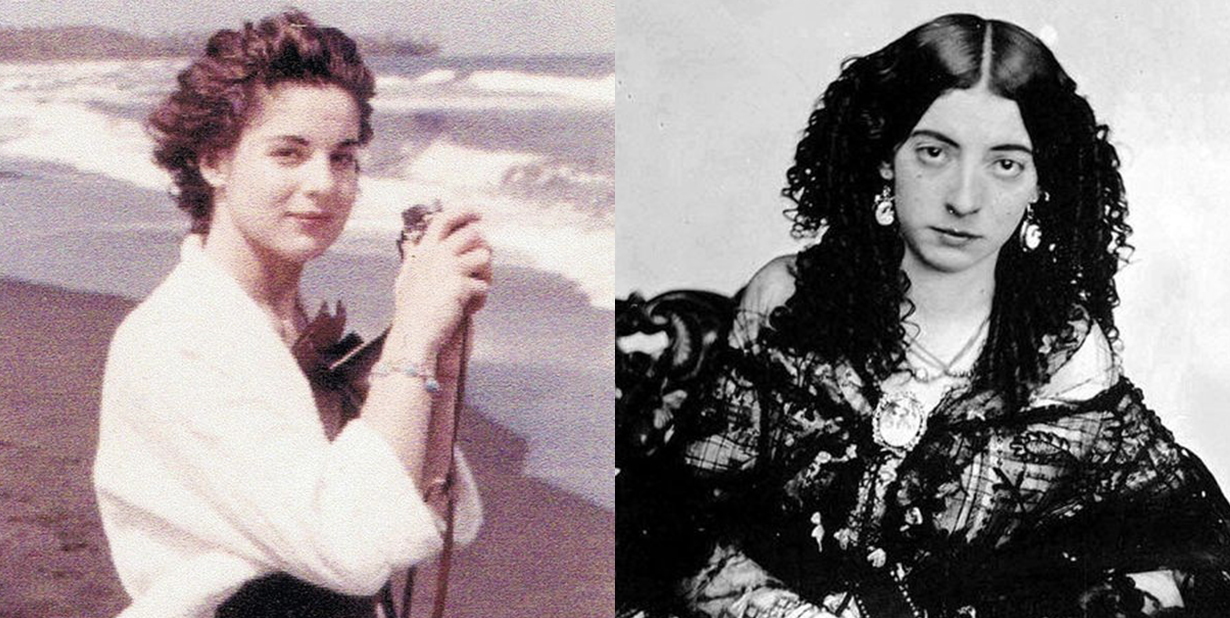
2. All in the Family
You don’t become China’s only ruling empress by playing by the rules. Wu Zeitan was the favorite concubine of Emperor Taizong and she chose not to merely retire upon his demise. Instead, Wu connected with her late lover's son, the new Emperor Gaozong, maintained her hold on power, and even seized China for herself upon his passing.
3. Pay or Say
Harriette Wilson was a prolific courtesan in Georgian England and a breathing lesson in honoring your financial commitments to women. Facing hard financial times, Wilson penned a scandalous account of her affairs—and charged her ex-lovers to remain anonymous in her writings. Considering many of her lovers were among England’s most elite—including prime ministers, heroic veterans, and even royalty—they had to pay or have Wilson air their dirty laundry to the public, and their wives.
4. Better Out Than In
Agnes Sorel is generally cited as the first truly powerful royal mistress of France.
As lover to King Charles VII, she was hugely influential, advancing land grants and court positions for herself as well as her family. She was also quite avant-garde when it came to fashion; Agnes pioneered the style of exhibiting one side of her chest out of her dress at all times, as the ultimate symbol of her provocative superiority.
5. This Bed Ain’t Big Enough for the Three of Us
Depending on who you ask, Eva Perón was either the loyal and influential First Lady of Argentina, or an up-jumped mistress and failed actress who meddled in Juan Perón’s political affairs. What is known about her affair with Juan? It began with Eva successfully demanding that he immediately discard his current standing mistress…on the night that he and Eva had just met. Get it, girl.
6. Sleep Your Way to Sainthood
Empress Theodora is mostly remembered today a mother to the Byzantine Empire and Saint to Eastern Orthodox Christians. However, Theodora initiated her political journey as an individual in the adult entertainment industry and an actress. One of her clients was Justinian, the heir to the Empire. Unsatisfied with just a professional relationship, Justinian changed the very law itself to marry the common courtesan.
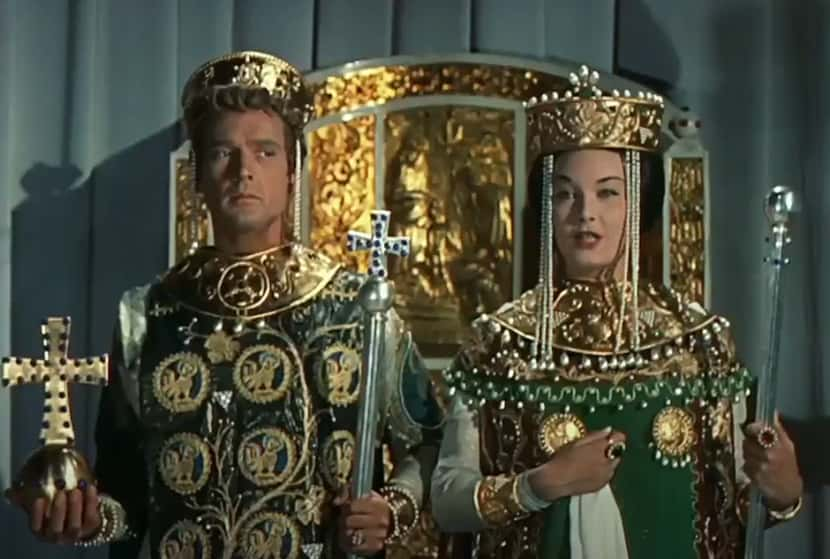 Theodora, Slave Empress (1954), Lux Film
Theodora, Slave Empress (1954), Lux Film
7. Don’t Step on These Twinkled Toes
Prance your way to power like Lola Montez did in 1846. The novice sensual dancer gained recognition not only for her twinkling-toes, but also by captivating King Ludwig I of Bavaria. Montez was so successful at cheesing off the Bavarian Jesuit faction, they labeled her a “Venus” and called for her destruction. Post-revolution, Montez would escape to New York City and hawk this high tales for the rest of her life.
8. Regal Revenge
There is no fury comparable to that of a king's son's mistress who is scorned. Still following? When Duke Frederick of York—AKA King George III of England’s second son—broke up with his mistress, Mary Anne Clarke, she did the “ladylike” thing and slunk away quietly. Just kidding:
Clarke made a declaration—whether genuine or fabricated—that she exploited her association with the Duke to accept payoffs for advancement in the armed forces, leading to a global controversy and tainting the reputation of her former royal partner.
9. Beauty & Brains
In the 18th century, Emilie du Châtelet was a Frenchwoman known in Europe’s intellectual circuit, both for her amazing mind and for her amazing other parts. When Châtelet wasn’t occupied as a lover to both Voltaire plus the dude who inspired Valmont in Dangerous Liaisons, she was also a key figure in advancing modern theorems of energy.

Sign up to our newsletter.
History’s most fascinating stories and darkest secrets, delivered to your inbox daily. Making distraction rewarding since 2017.
10. On the Fence
Despite being an ardent Catholic, Gabrielle d'Estrées was the chief mistress of the Henri IV of France, a Protestant King of a still mostly-Catholic country. When Henri introduced his unpopular Edict of Nances, which gave Protestants more rights in France, it was d'Estrées who quelled rebellion and vocal uprising from her own Catholics. Henri publicly praised her and sought to break up his marriage in order to marry her himself—unfortunately, d'Estrées succumbed during childbirth at the age of 26 before witnessing the full extent of her wily influence.
11. The Adultery Diaries
Benito Mussolini was the infamous WWII dictator of Italy, but he didn’t let his political career—or wife and five kids—stop him from taking the 19-year-old Clara Petacci as his mistress. That is, until it all came crashing down as Mussolini was hung by a mob outside of Milan.
Nevertheless, her journals during the affair were published in 2009, which means the public is welcome to gander at the dirty details of Mussolini’s private life.
12. That’s So Pompadour
When she was only 5 years old, Jeanne Antoinette Poisson was taken to a fortuneteller named Madame de Lebon. The soothsayer predicted that the middle-class Poisson would grow up to reign over the heart of a king.
Accordingly, the little girl’s mother gave her a rigorous education that would put in the royal court, where Poisson did, eventually, fulfill her “destiny". And this little girl, of course, grew up to be the famous Madame de Pompadour, chief mistress to Louis XV of France.
Maybe Lebon could really see the future…or maybe she just gave Poisson’s mother the motivation to send the girl on a self-fulfilling prophecy. We don’t hold the crystal balls here.
13. My Little Poisoner
What if a real-life “femme fatale” is mostly based in fiction? That’s probably the case with Lucrezia Borgia, the illegitimate daughter of Pope Alexander IV. History has painted her with a poisonous brush.
For centuries, she’s gone down as mercurial as her father and brothers, implicated in countless assassinations against her enemies and her own husbands! It’s even said Lucrezia carried a hollowed ring filled with poison, for when peaceful negotiations just couldn’t cut it at the dinner table. Nothing but rumors substantiates these tales, but historical soaps just can’t get enough of this Renaissance femme fatale.
 The Borgias (2011–2013), Showtime Networks
The Borgias (2011–2013), Showtime Networks
14. Catch These Claws
Idioa Lopez Riano, a Basque separatist from Spain, is fulfilling a 1,500-year incarceration sentence.
In the 1980s, the individual named Lopez, also known as "La Tigresa" (the tigress), was an influential figure in numerous politically-motivated killings. This moniker stems from her seductive reputation; her method involved bewitching law enforcement officers prior to executing her actions.
15. ‘Til Arrest Do Us Part
If her story didn’t take place in the English mid-1800s, one could totally imagine Marie Manning as the femme fatale in a Hollywood film noir. After all, she and her husband, Frederick Manning, became Britain’s the first married couple to be publicly executed side-by-side in 1849, an event which about 40,000 people attended. Once upon a time, Marie was juggling marriage proposals between Frederick and an older gentleman.
She married Frederick, thinking that his inheritance was coming soon. When that money didn't come through, she and her new husband resorted to robbing her previous suitor's house, causing his demise, and concealed his body beneath the floorboards. Before it gets too romantic here, you know both Marie and Frederick tried to lay the blame on each other throughout the trial.
Perhaps "ride or quit" is a bit of an overstatement.
16. Dirty Dozen
Marie Besnard was named “the Queen of Poisoners” after being charged with 12 murders. Among her alleged victims were her father, her mother, a father-in-law, a mother-in-law, two friends, both of her husbands, and miscellaneous relatives. By now, you get the idea.
The French courts tried Besnard a total of three times over 10 years for the deaths, but it ended in two mistrials and an acquittal. She never faced incarceration and departed this life as a free widow in 1980.
17. Knock-Out
Juana Barraza led a triple life. By day, she was a 48-year-old single mother of four.
By night, she was a Mexican masked wrestler who could bench-press more than 200 pounds and fought under the name “The Silent Lady". Her third, less savory night job was "perpetrator of repeated homicides". Barraza eliminated as many as 49 people between 1998 and 2006. All of her victims were elderly women; Barraza would win their confidence, get invited into their homes, and without any explanation other than, "I got angry" as per her declaration, she would swiftly choke them. Was wrestling not enough of an outlet for her rage?
18. Last Rights
In 1984, Velma Barfield became the first American woman to be executed in 22 years. She had been convinced of six murders, all of whom were poisoned with arsenic, so Barfield could collect insurance and feed a growing drug habit. Her final requests and meals were almost stereotypically "girly": she chose to eat Coca-Cola and Cheez Doodles as her ultimate meal and adorned pink PJs during her final moments.
Sounds like my last slumber party!
19. Women of Words
Although the term “femme fatale” gets pinned to Hollywood film noirs about scheming, deadly women, the phrase came up, predictably, in the French language during the mid-1800s. Before that, the lady (un)lucky might have been called a “Circe". This may be reference to a mythical femme fatale:
Circe, the sorceress who seduced Odysseus and turned his men into pigs.
20. Dressed for Success
Giuseppe Dosi goes down in history as the “Sherlock Holmes” of Italy. He was a master of disguise, with 17 confirmed disguises in his repertoire. His collection was not complete, of course, without his “femme fatale” persona. We hope it came in handy.
21. Wrong Song
Even in antiquity, the femme fatale served as a convenient character archetype to explore fears about female sexuality and power. Once mythic example of “femmes fatale” might be the Sirens of Odysseus’ voyage, the seductive creatures who try to pull his ship off course and into the rocks.
22. Last Free Will and Testament
Isadora Duncan was attracted to both genders, embraced communism, denied the existence of God, and was an unwed mother of two.
But she is better known for innovating European dance a characteristically modern twist. Even her passing was embroiled in controversy and intricate plots; her will stands as the first Soviet last testament to be probated in the United States.
23. Cleopatra
Hollywood just can’t resist putting Cleopatra of Egypt into the box of “femme fatale". In Plutarch’s biography of Julius Caesar, it's shared that the queen of Egypt trickily concealed herself within a carpet to bypass Caesar's guards. This led to her successfully charming the Roman leader, leading him to abandon his initial intentions to conquer Egypt and instead, he chose to favour her reign.
Cleopatra would go on to have much more politically active—and complicated—life, but this anecdote did wonders to immortalize her as one of history’s most powerful seducers.
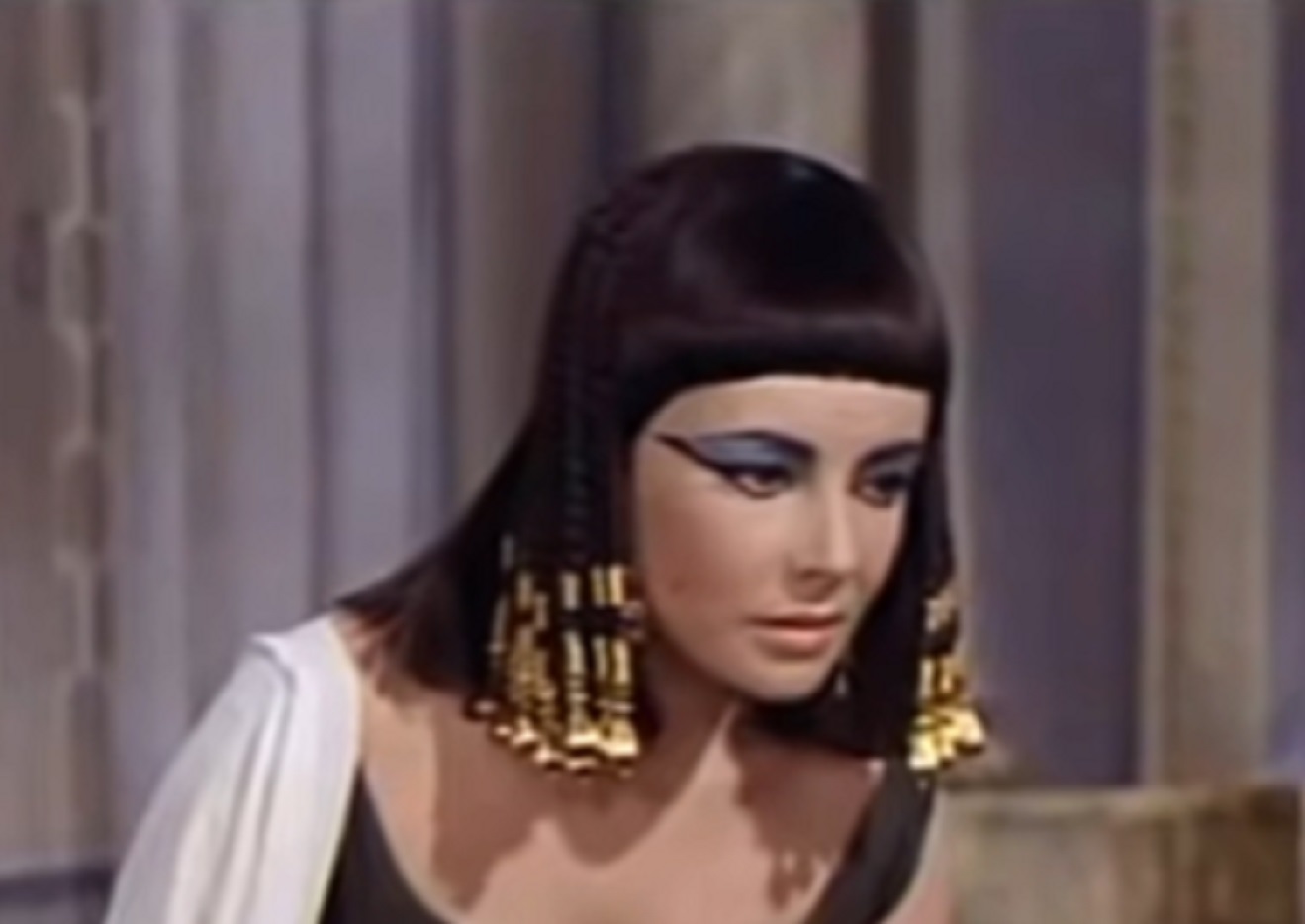 Twentieth Century Fox, Cleopatra (1963)
Twentieth Century Fox, Cleopatra (1963)
24. Who Needs Revolution When You Have Songs?
Euphémie Daguilh was a Haitian choreographer and composer whose power over people—lovers and audiences alike—was legendary. She was the most influential mistress of Emperor Jean-Jacques Dessalines of Haiti; when he was deposed, the mobs nearly took her life.
But Daguilh was such a charmer, she managed to regain control of the crowd by implying that she would treat them to dessert and some of her songs.
25. Queen of Mean
Griselda Blanco, infamously known as “La Madrina” (the Black Widow), had a chilling reputation. This notorious figure was implicated in the deaths of her three ex-husbands and related to numerous other professional assignments.
But I suppose when your professional life leads to you being labeled as the Sovereign of Illicit Substances, the body count does begin to rise drastically.
26. Time is a Flat Circle on a Motor Bike
Ironically, the "Black Widow" of the 1970s narcotics trade met her downfall due to her own tactics: Griselda Blanco saw her end in 2012 as a result of a motorcycle drive-by event, using an execution-style method she herself had devised.
A fitting punishment.
27. Instagram Baddie
The title “Queen of the Pacific” seemed too perfect for Sandra Avila Beltran. She was, after all, born into the Mexican drug trade—third generation—and kept her affairs within the royal drug courts, having formed a romantic and professional alliance with Colombian drug kingpin Juan Diego Espinos. She also had a queenly taste in aesthetic; Beltran was fond of plastic surgery and persuaded officers to let her put on make-up before she did her perp walk.
28. Giddy and Put Your Hands Up
Hide your horses! If you were a rancher in 19th century Texas, you would’ve been on the lookout for Belle Starr, the infamous horse-stealing outlaw. Alongside her partner in transgression and love - a Cherokee Native American known by the memorable name of Sam Starr - Belle managed an Oklahoma Indian Territory ranch that also served as a refuge for other lawbreakers.
The couple spent their days preying upon hapless cowboys, at least until Belle mysteriously met her end on her own ranch in 1889.
29. Trading on Up
Anne Bonny’s piracy career began with two iconic femme fatale tropes: snitching and adultery. Not fond of her husband’s decision to be a government spy, Bonny began to hang out in pirate bars. She inevitably took a pirate lover, the infamous John “Calico Jack” Rackham, who tried to pay her husband off to let her go. When Bonny’s husband refused, the lovers simply ditched him and went on to raid ships into the sunset.
 Black Sails (2014–2017), Starz!
Black Sails (2014–2017), Starz!
30. Beautiful and Wanted
In 2014, Stéphanie Beaudoin from Quebec gained online attention for being named "the world's most attractive outlaw". Beaudoin had tweeted a picture of herself in a bikini.
She looked pretty good in it. Surprisingly, this led to her becoming an internet sensation, known as a present-day temptress with an intriguing history, mirroring her looks. During this period, Beaudoin was dealing with 114 charges involving bank infringements, entry violations, and firearm ownership.
31. Stealing Heart
People in 1899 were simply fascinated by Pearl Heart, a woman notorious for her stagecoach heists.
She even received a pardon from incarceration, thanks to a compassionate Arizona governor. Subsequently, her life becomes more challenging to confirm, with even her final day shrouded in mystery. Perhaps it’s better to leave our starlets to the imagination.
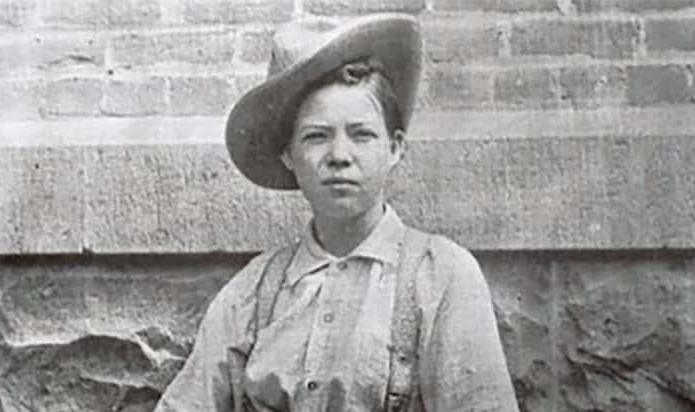 Flickr, ADiamondFellFromTheSky
Flickr, ADiamondFellFromTheSky
32. Unholy Vows
Did “femmes fatales” start in the nunnery? Some cite the “wayward nun” character archetype as the Christian Medieval ancestor of the femme fatale. After all, what better way to play with the boundary between female authority and sexuality than donning a funny habit?
33. Not Shy Spy
Anna Chapman was a Russian-born model and media personality who managed to make a charmed life for herself in early 2000s New York. It must have surprised her friends when Chapman was apprehended for engaging in espionage for the Russian government. According to FBI counter-intelligence chief Frank Figliuzzi, Chapman almost snared one of the president’s leading cabinet members in a “honey trap” plot.
34. Who Needs Revolution When You Have Songs?
Chiyome was not only the wife of a samurai warlord—she was the 16th-century leader of a female ninja group, of whom there are few contemporary accounts. After all, good ninjas don’t tend to leave traces. Recruiting individuals from the world of adult entertainment and orphans alike to her spy ring, Chiyome's army charmed and demolished their way through the country on countless missions.
As many as two to three hundred female spies took flight under Chiyome’s vast and shadowed wing.
35. She Bites Back
Not unlike Cleopatra, the “She-Wolf” of France, Isabella of France, who became the Queen of England, has been an attractive figure for historical fiction writers who want to dabble in “femme fatale” tropes. When you turn to both your lover and a foreign army to depose your husband, as Isabella did in 1330, I think “femme fatale” isn’t doing full justice to your name.
36. Misandry Murders
Belva Gaertner was known as the “most stylish woman on Murderess Row". In 1924, the cabaret singer, under suspicion, was implicated in the life ending event of her lover in a car, involving a firearm.
Gaertner pled drunken amnesia with no recollection of what had happened. The 38-year-old dancer offered the made-for-movie line, "Why it's absurd to claim that I took Walter's life". I liked him, and he loved me—but no woman can adore a man enough to cause his demise. They aren't worth it, because there are always plenty more". Despite—or perhaps because of—her aloof approach to men’s lives, Gaertner was acquitted of all charges.
37. PR to Live For
Just a month after Belva Gaertner was held in custody for causing her lover's demise, a Southern belle named Beulah Annan was apprehended for a similarly aggressive act towards her sweetheart, this incident occurring within her sanctuary.
Annan, referred to as "the prettiest woman on Murderess Row," was alongside Gaertner in confinement. Annan pulled every charm and publicity trick to gain advantage, before and after her trail, from saying her victim was a burglar, pleading a fake pregnancy, and even turning her subsequent divorce into a photo-op.
38. A Murderous Motion Picture
Of course, the sensational trials—and acquittals—of Belva Gaertner and Beulah Annan, which revolved around fatal incidents, would form the basis of journalist Maurine Watkin’s 1926 play, Chicago. And of course, that play would inspire the 2002 film Chicago starring Rene Zellweger and Catherine Zeta-Jones as the jazzed and trigger-happy femmes fatales.
39. Strife with the Wife
Diane de Poitiers was 20 years older than her lover, King Henri II of France.
The age difference did nothing stop to Poitiers from exerting more control in his reign than Henri’s own queen, Catherine de Medici—who, unlike Diane, was Henri’s age. In fact, it was Diane who had to remind Henri to spend more time with his wife and make royal babies.
 Reign (2013–2017), CBS Television Studios
Reign (2013–2017), CBS Television Studios
40. Hürrem Sultan
Hürrem Sultan was an Ottoman slave-concubine who was so influential, Sultan Süleyman the Magnificent freed her, married her, and innovated the title of “Haseki Sultan” (favorite concubine) just for her. But did he end his son's life just for her?
Hürrem used her unprecedented position to remove allies of Prince Mustafa, Süleyman’s eldest son from a previous concubine. Under fratricidal law, Mustafa posed a significant risk to her own children. Yet, it was her husband who commanded the demise of Mustafa himself. Regardless, Suleiman’s compassion for Hürrem—and his kids by her—is an oft-cited excuse behind the execution of his eldest, more ambitious child.
41. Squad Goals
According to some, Catherine de Medici kept a “stable” of beautiful female spies, who became known as “l’escadron volant,” or the flying squadron. In theory, Catherine would deploy these ladies to the beds and hearts of Paris’s most high-powered men, where they would learn secrets and pass them on to their mistress. Of course, historians still debate how much is true and how much is simply salacious slander.
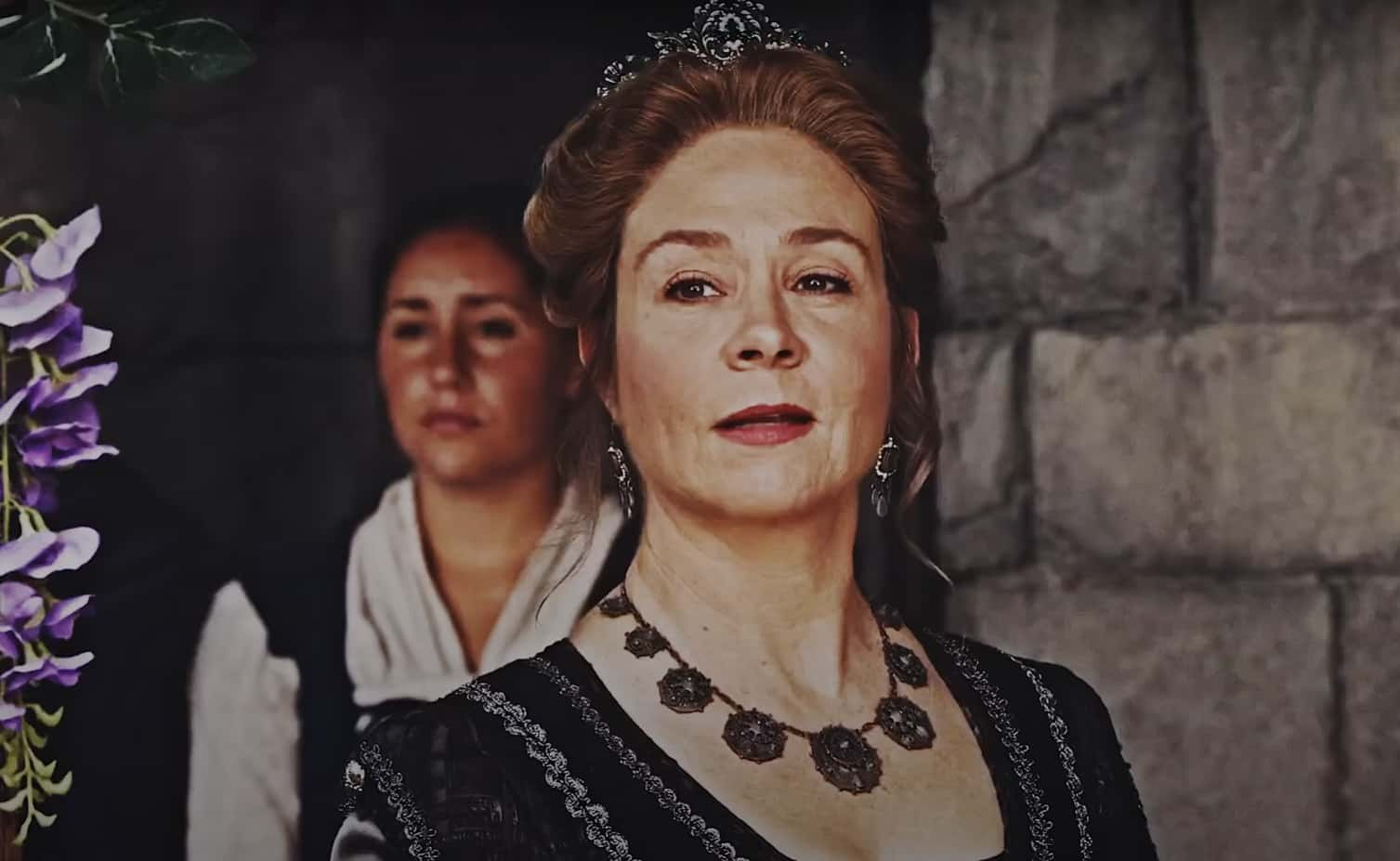 Reign (2013–2017), CBS Television Studios
Reign (2013–2017), CBS Television Studios
42. A Kiss with a Fist
Born a white Dutchwoman named “Margaretha Zelle,” Mata Hari made a name for herself as both an Orientalist-style dancer, and as a WWI spy for the Germans. The French and British held Hari responsible for the loss of at least 50,000 lives due to her two-faced actions and executed her on October 24, 1971—before which Hari boldly blew one last kiss to her executioners.
Sources:



